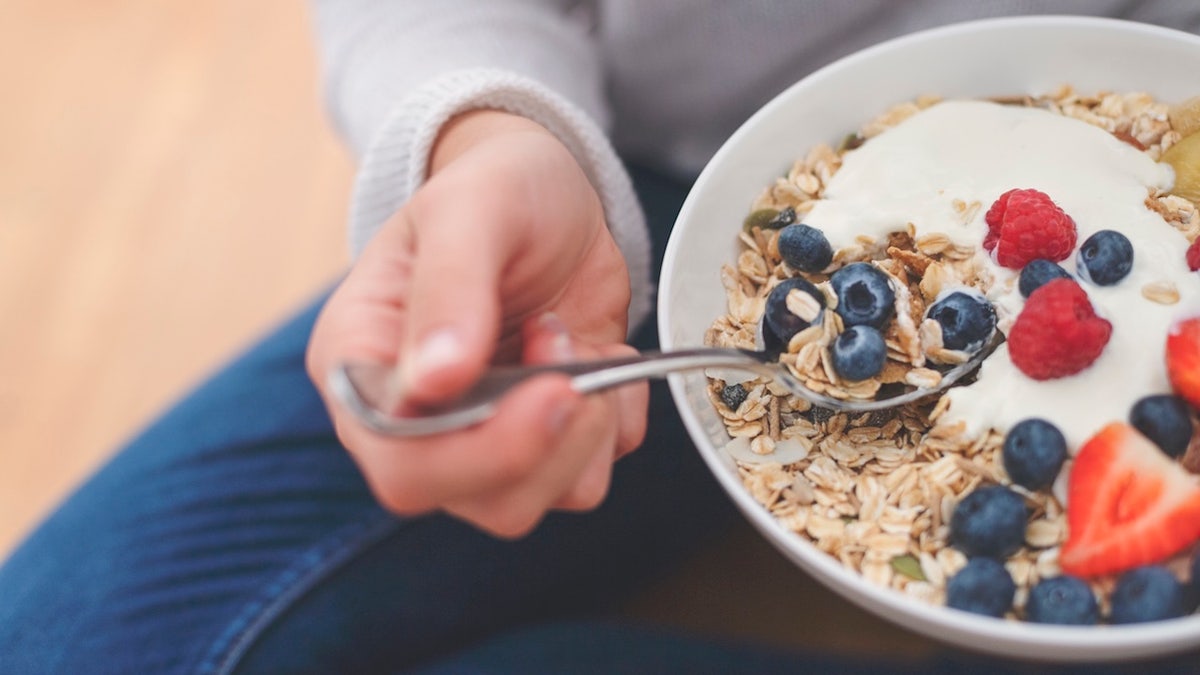Carbohydrates and fiber linked to healthier aging in some groups, study finds
NEWYou can now listen to Fox News articles!
Carbohydrates may have gotten a bad rap, but a new study from Tufts University finds that some are better than others — and that older women in particular could reap the benefits.
The research, which was recently published in the journal JAMA Network Open, found that daily consumption of fiber and “high-quality” carbs in midlife can contribute to healthier aging and overall better wellness among older females.
The researchers defined “healthy aging” as “the absence of 11 major chronic diseases, lack of cognitive and physical function impairments, and having good mental health.”
EXPERTS REVEAL HIDDEN WAYS SUGAR ACCELERATES AGING BEYOND JUST WEIGHT GAIN
The study was led by researchers from the Jean Mayer USDA Human Nutrition Research Center on Aging (HNRCA) at Tufts University and Harvard T.H. Chan School of Public Health.
“The main takeaway of the study is that consuming dietary fiber and high-quality carbohydrates — those from fruits, vegetables, whole grains and legumes — is associated with positive health status in older adulthood,” lead author Andres Ardisson Korat, a scientist at HNRCA, told Fox News Digital.

“This includes the absence of chronic diseases and good physical and cognitive function.”
The researchers collected data from the Nurses’ Health Study, in which 47,000 women reported their dietary habits and health outcomes between 1984 and 2016, according to a Tufts press release.
The women ranged in age from 70 to 93 by the end of the study period.
EATING THIS BREAKFAST FOOD COULD HELP YOU LIVE LONGER, STUDY SUGGESTS
The researchers looked at the women’s consumption of dietary fiber, total carbohydrates, refined carbohydrates, high-quality (unrefined) carbohydrates, and carbohydrates from whole grains, fruits, vegetables and legumes.
They also analyzed glycemic index (each food’s score indicating how much it raises blood sugar) and glycemic load, which also takes into account portion size to provide a more accurate measure of each food’s impact on blood sugar.
“It’s not just about ‘carbs versus fats versus protein’ — it’s about what kind of carbs you’re eating.”
Women who consumed higher amounts of total carbohydrates; high-quality carbohydrates from whole grains, fruits, vegetables and legumes; and total dietary fiber in midlife were 6% to 37% more likely to have healthy aging and to score higher in several areas of mental and physical wellness, the study found.
Conversely, consuming refined carbohydrates — which come from added sugars, refined grains and potatoes — and starchy vegetables resulted in a 13% reduced chance of healthy aging.
Quality over quantity
“This study reinforces something many of us intuitively feel: quality matters,” noted Melanie Avalon, a health influencer, entrepreneur and biohacker based in Atlanta, Georgia.
“It’s not just about ‘carbs versus fats versus protein’ — it’s about the kind of carbs you’re eating.”

Avalon, who was not involved in the research, discussed some of the more notable findings with Fox News Digital.
“Perhaps most surprising was the finding that replacing just 5% of calories from carbohydrates with protein (from either plant or animal sources) was associated with lower odds of healthy aging by 7% to 37%,” she said.
HEALTHY EATING IN MIDDLE AGE HAS THIS KEY LONGEVITY BENEFIT
Avalon also noted that when carbohydrates were segmented by type — processed versus unprocessed — the associations with healthy aging were independent of BMI (body mass index), a metric typically closely linked to metabolic health.
“This suggests the effects of carbohydrate quality on healthy aging were not solely explained by weight-loss effects,” she said.

The study also briefly touched on the controversial topic of seed oils.
“It found that higher intake of polyunsaturated fatty acids (PUFAs) — which are commonly found in seed oils — was linked to decreased odds of healthy aging, adding nuance to the ongoing debate,” Avalon added.
Based on the study findings, the biohacker recommends favoring whole, unprocessed foods, including fruits, vegetables, legumes and whole grains.
CLICK HERE TO GET THE FOX NEWS APP
“Shop the perimeter of the grocery store for produce and whole grains, as well as the freezer aisles for frozen fruit and vegetables,” she suggested. “Consider dipping into the aisles only for pantry staples like canned legumes.”
For those who tolerate grains, people can reap the benefits of foods like quinoa, brown rice, oats and whole wheat products, Avalon noted.

“Prioritize fiber-rich foods and minimize refined carbohydrates like white bread, sugary beverages and ultraprocessed snacks.”
“These shifts can meaningfully support healthy aging and reduce the risk of chronic disease.”
Limitations and future research
One chief limitation of the study is that the participants were mainly white female healthcare workers.
“Because of the observational nature of the study, we cannot rule out confounding by other variables,” Korat said. “We would have liked to have data on men to evaluate the associations in this group.”
CLICK HERE TO SIGN UP FOR OUR HEALTH NEWSLETTER
The researchers called for more diverse studies that look closer at how dietary fiber and high-quality carbs contribute to healthy aging.
“We hope our findings help inform consumers about the importance of healthy diets in the promotion of healthy aging,” Korat added.
“Personalized nutrition, grounded in both science and self-awareness, may be key to thriving across the decades.”
“The more we can understand about healthy aging, the more science can help people live healthier for longer.”
Avalon added that while diet is “foundational,” it’s just one piece of the “healthy aging puzzle.”
For more Health articles, visit www.foxnews.com/health
“Exercise, sleep, stress management and social connection all play a role,” she said.
“Ultimately, personalized nutrition, grounded in both science and self-awareness, may be key to thriving across the decades.”
